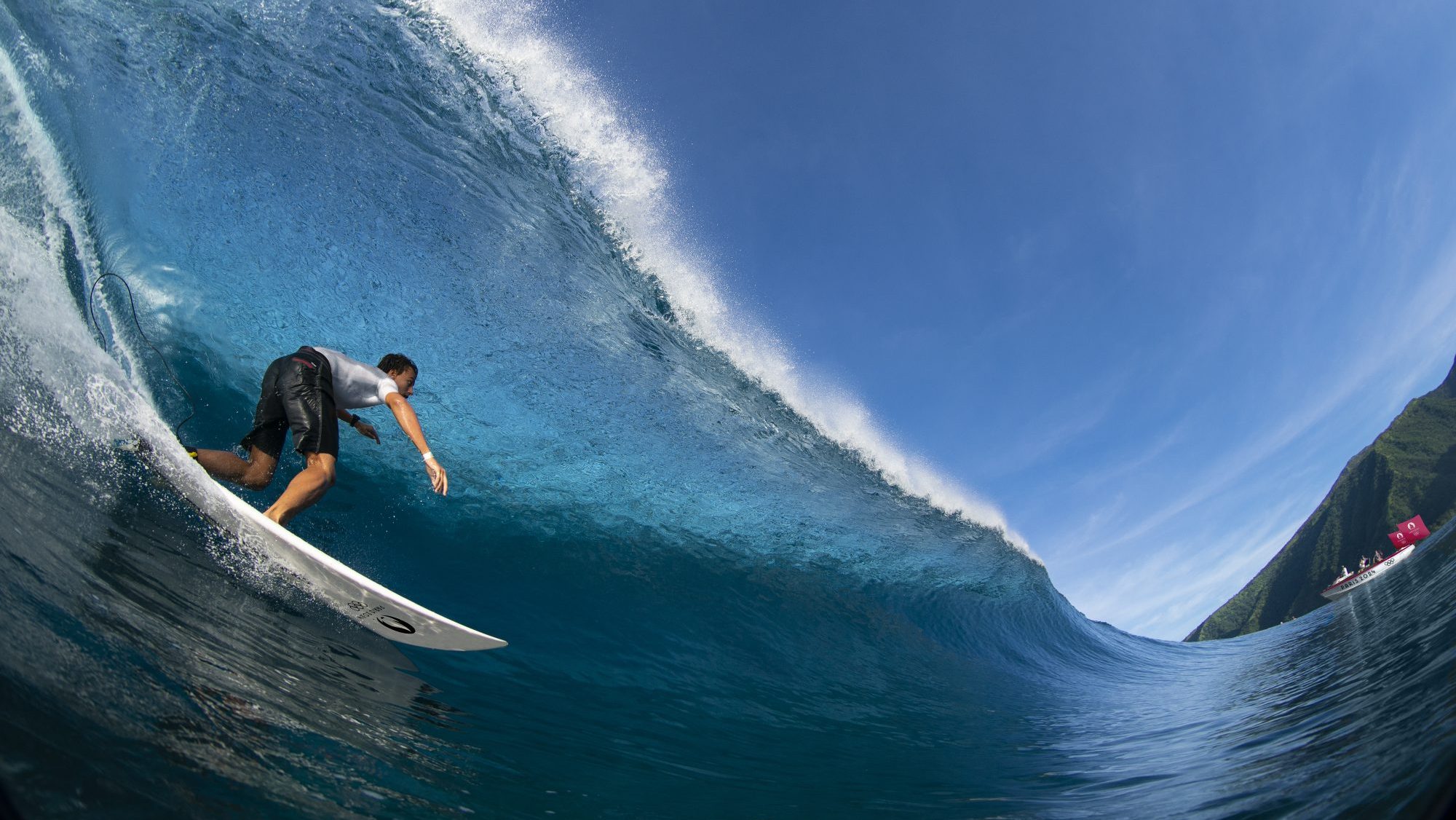Surfing in Tahiti has proved to be one of the most captivating parts of the 2024 Olympics, from Colin Jost’s ongoing medical crises to a viral shot of a surfer suspended in midair.
But for all the buzz it’s creating, surfing still doesn’t get a full share of media-rights revenue, and it won’t until the 2028 Los Angeles Games.
The international federations of the different Olympic sports, known as the ASOIF, or Association of Summer Olympic International Federations, all receive a cut of revenue from broadcast rights at the Games. The total pot was $540 million in Rio and Tokyo, and the ASOIF asked the International Olympic Committee for at least $596 million in Paris. It’s a fair ask, because the IOC made $3.1 billion in TV rights from the Tokyo Games. More popular sports like swimming, track, and gymnastics get a bigger cut (World Athletics got $39 million after Tokyo), and revenue is divvied up by tiers down to the least popular sports (rugby, golf, and modern pentathlon got $12.98 million apiece from Tokyo).
None of the new sports in Tokyo received any of the broadcast revenue because they were added through a new, expedited process, according to surfing magazine The Inertia. But the International Surfing Association got only $2.7 million from the IOC to carry it over from Tokyo to Paris, The Inertia reported. That’s at least a step up from the “hundreds of thousands” of dollars the federation made before its Olympic debut, its president Fernando Aguerre told Bloomberg.
Ahead of Paris, the ASOIF amended its rules in 2022 so that full members (those who receive broadcast revenue) need to have competed in the three more recent Summer Games. That set back surfing’s share of the rights to 2028.
The sport will now enter another multiyear stretch when it’s technically an Olympic sport but doesn’t get the same resources. Compare that to FIFA, which on top of its ASOIF cash injection from the Olympics, will get broadcast revenue from the men’s and women’s World Cups and Club World Cups. Surfing’s deals with NBCUniversal and Globo aren’t quite as lucrative.
“We will continue to do the best we can with the modest resources at our disposal to self-fund the organization, but at least we have the certainty that at the LA28 Olympics we will be part of the revenue distribution, which is important,” Aguerre told The Inertia in the fall.
At Home in Cali
The next Games should also be the first time surfers get a traditional Olympic experience. Team USA surfer John John Florence told Front Office Sports his team didn’t stay in the Olympic Village in Tokyo due to distance, and Tahiti is nearly 10,000 miles from Paris, with surfers shacked up in local residents’ homes or aboard a cruise ship.
Given Southern California’s multitude of surfing options, including World Surf League favorite Lower Trestles in San Clemente, Calif., it’s likely surfers will finally join the festivities in 2028.







![[Subscription Customers Only] Jun 15, 2025; Seattle, Washington, USA; Botafogo owner John Textor inside the stadium before the match during a group stage match of the 2025 FIFA Club World Cup at Lumen Field.](https://frontofficesports.com/wp-content/uploads/2026/02/USATSI_26465842_168416386_lowres-scaled.jpg?quality=100&w=1024)
![[Subscription Customers Only] Jul 13, 2025; East Rutherford, New Jersey, USA; Chelsea FC midfielder Cole Palmer (10) celebrates winning the final of the 2025 FIFA Club World Cup at MetLife Stadium](https://frontofficesports.com/wp-content/uploads/2026/02/USATSI_26636703-scaled-e1770932227605.jpg?quality=100&w=1024)




![[US, Mexico & Canada customers only] Feb 6, 2026; Riyadh, SAUDI ARABIA; Jon Rahm in action during the third round of play at LIV Golf Riyadh at the Riyadh Golf Club.](https://frontofficesports.com/wp-content/uploads/2026/03/USATSI_28173562_168416386_lowres-scaled.jpg?quality=100&w=1024)

![[US, Mexico & Canada customers only] Sep 28, 2025; Bethpage, New York, USA; Team USA's Bryson DeChambeau reacts after hitting his approach on the 15th hole during the singles on the final day of competition for the Ryder Cup at Bethpage Black.](https://frontofficesports.com/wp-content/uploads/2026/03/USATSI_27197957_168416386_lowres-scaled.jpg?quality=100&w=1024)

